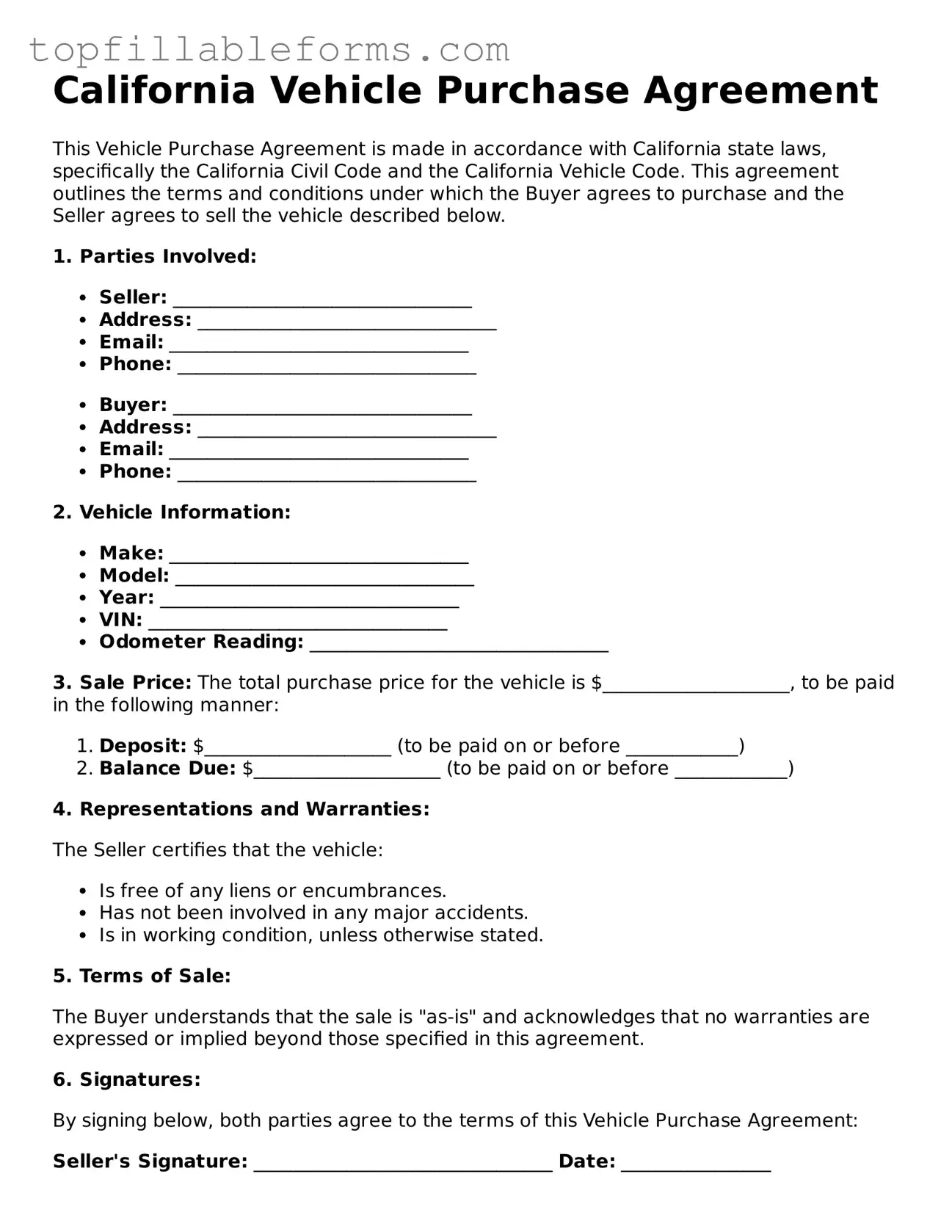Attorney-Verified Vehicle Purchase Agreement Template for California
The California Vehicle Purchase Agreement form is a crucial document that outlines the terms and conditions of a vehicle sale between a buyer and a seller. This agreement serves to protect both parties by detailing important information such as the purchase price, vehicle identification number, and any warranties or guarantees. Understanding this form is essential for anyone looking to buy or sell a vehicle in California.
Open Vehicle Purchase Agreement Editor Here

Attorney-Verified Vehicle Purchase Agreement Template for California
Open Vehicle Purchase Agreement Editor Here
Finish the form now and be done
Finish your Vehicle Purchase Agreement online by editing, saving, and downloading fast.
Open Vehicle Purchase Agreement Editor Here
or
▼ PDF File
